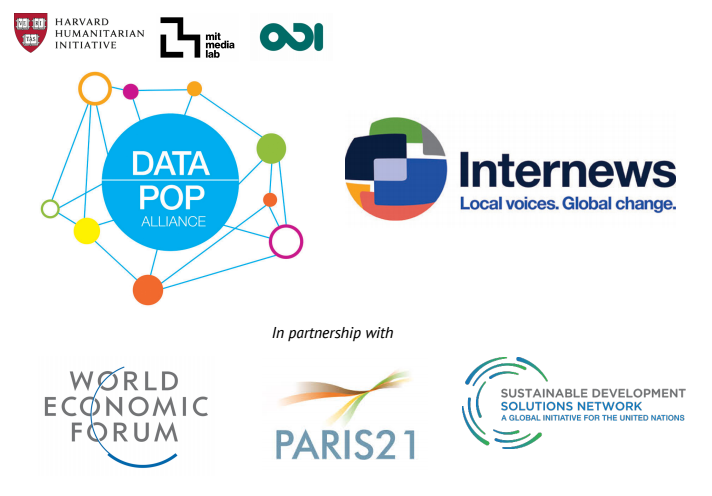Data-Pop Alliance hosted a Workshop at the 70th Session of the United Nations General Assembly in September 2015 . The Workshop, which included a White Paper Launch, was organized and funded by Data-Pop Alliance and Internews’ Center for Innovation & Learning, in partnership with PARIS21, the World Economic Forum (WEF), and the Sustainable Development Solutions Network (SDSN).
The Workshop aimed to bring together key actors from the Data Revolution community to examine the main assumptions, implication, limitations and expansions of the ‘Data Literacy’ discourse—with a focus on ways in which data can serve to engage and empower communities. The Workshop’s format and content was meant to generate in-depth and lively debates, and serve as a catalyst for future collaborations and impact. The event was titled after and marked the launch of a Data-Pop Alliance White Paper (forthcoming) entitled “Beyond Data Literacy: Reinventing Community Engagement and Empowerment in the Age of Data,” jointly developed by Data-Pop Alliance and Internews’ Center for Innovation & Learning, with co-authors from the MIT Center for Civic Media.
‘Data literacy’ has become one of the hottest policy concepts and priorities of the sustainable development agenda and the ‘Data Revolution’ discussions in particular. In the fall of 2014, for example, the report of the Independent Expert Advisory Group (IEAG) on the Data Revolution for Sustainable Development called for a “special investment to increase global data literacy”. Several publications and articles—including the White Paper launched at this event—have since then used data literacy as their object of analysis or starting point.
While the concept’s contours may appear clear at first, and the need for and benefits of promoting it may seem straightforward, there has actually been little in the way of interrogating and clarifying what is meant by and expected from it, and hardly anything done to actively and strategically promote it. The Workshop discussed several major questions:
1. What is ‘data literacy’? What does it entail and how is it distinguished from statistical literacy, numeracy, etc.?
2. What societal goals and underlying ‘theory of change’ is ‘data literacy’ expected to serve in light of historical precedents, which should impact how it is defined, promoted and measured?
3. Are current conceptualizations of ‘data literacy’ adequate—or do they put too much emphasis on technical requirements and skill and fail to challenge existing power structures and systems?
4. How, for, and by whom should ‘data literacy’ or any better concept and associated vision, e.g. literacy or community engagement and empowerment in the age of data, be promoted?

